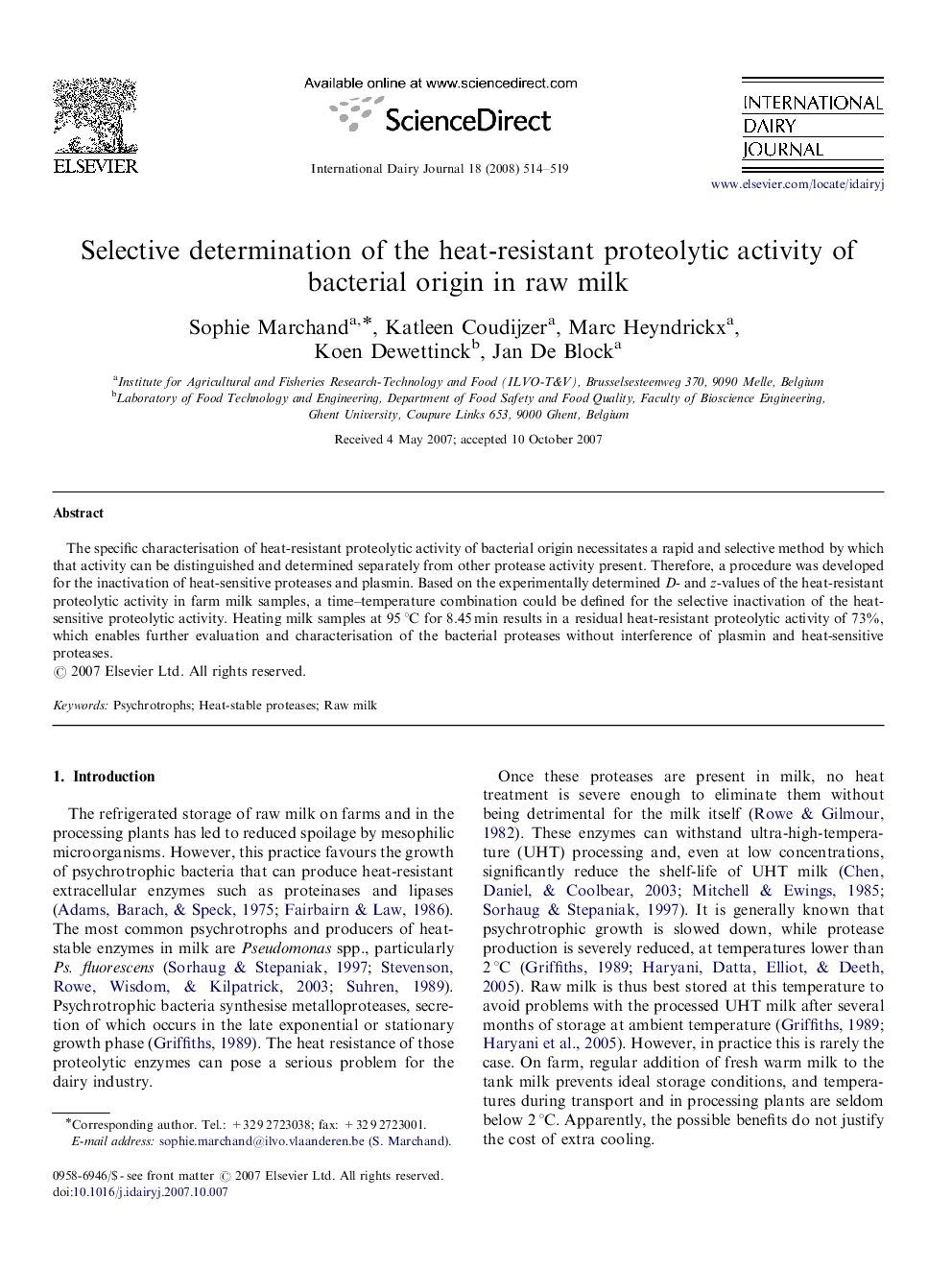| Article ID | Journal | Published Year | Pages | File Type |
|---|---|---|---|---|
| 2435328 | International Dairy Journal | 2008 | 6 Pages |
The specific characterisation of heat-resistant proteolytic activity of bacterial origin necessitates a rapid and selective method by which that activity can be distinguished and determined separately from other protease activity present. Therefore, a procedure was developed for the inactivation of heat-sensitive proteases and plasmin. Based on the experimentally determined D- and z-values of the heat-resistant proteolytic activity in farm milk samples, a time–temperature combination could be defined for the selective inactivation of the heat-sensitive proteolytic activity. Heating milk samples at 95 °C for 8.45 min results in a residual heat-resistant proteolytic activity of 73%, which enables further evaluation and characterisation of the bacterial proteases without interference of plasmin and heat-sensitive proteases.
